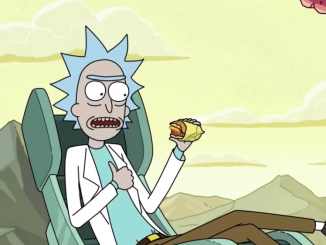
[dropcap]B[/dropcap]lack 47- a homegrown piece of cinematic and cultural art to be proud of.
This epic tale of the Great Irish Famine sets a mood from the outset which likens this historical drama to the ecstasy of a Liam Neeson thriller.
When a Connaught Ranger returns home to the devastation caused by Famine and disinterested imperial landowners, he goes on an epic quest of vengeance in memory of his family.
There are some minor details in the film which leave little to be desired. These are mainly poor CGI of cottages and period scenery, but a lot of this can be overlooked when the quality of the film’s shoots and storyline are considered given its relatively low budget.
Director Lance Daly’s vision to shoot people and their facial and body expressions build up a gravity and tension which is palpable throughout the movie. This technique of particular interest can be seen throughout his work, albeit to different effect, in films like ‘Life’s a Breeze’.
The film starts off with the soon to be iconic first encounter with Hugo Weaving’s character through a bar mirror. The attention to emotion and expression is quite exquisite and throughout the film it helps solidify different character’s perspectives on the Famine.
There are two main attributes that make ‘Black 47’ a great Irish film and a great film in general: its entertainment through a typically Irish medium and its nuanced look on one of the most important events in Irish history. Perspectives are given from every type of Irish person living in Ireland on the Great Famine while the vengeance tale occurs simultaneously.
Perhaps the best example of this is that of the hero’s view. A disenfranchised soldier returning from war which he fought for the Empire only to find his mother dead and country in ruins on arriving home. With Celtic Irishmen ‘almost as rare as a red Indian in Manhattan’.
We root for our murderous hero throughout the movie as his actions are on the side of justice. The themes of justice in contrast with due process are catalysts of sorts in the movie. As our Irish Braveheart says, “when I kill someone they call it murder. When they do it they call it war.”
The cries of injustice from the admirable characters of the movie is what drives us on to a Tarantino style finale. Characters throughout the film, with the exception of crown caricatures, all fall to their humanity.
But this bold and unafraid account of the Famine tells it for what it was. A genocide caused by British austerity following the potato blight. Summed up quite callously in the film when the main landlord thanks the heavens for the Famine so he did not have to pay a tenant tax.
A crisis now striking a chord with Irish critics and audiences as the same economics find us in a housing crisis. Go and see ‘Black 47’. You will learn a lot while being extraordinarily entertained.
John Morley
Image Credit: IrishCentral.com



